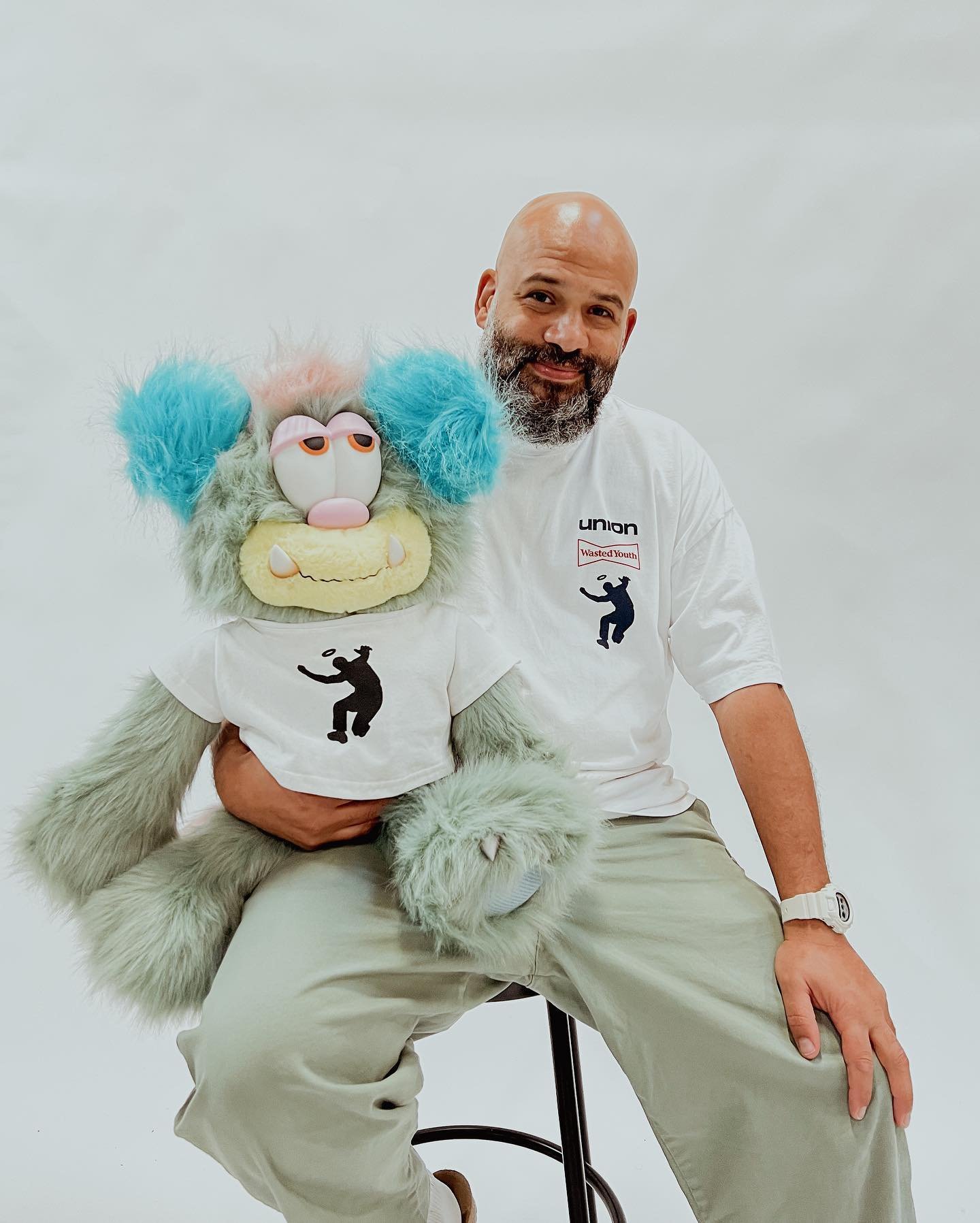From Tokyo to the World - A Conversation With VERBAL
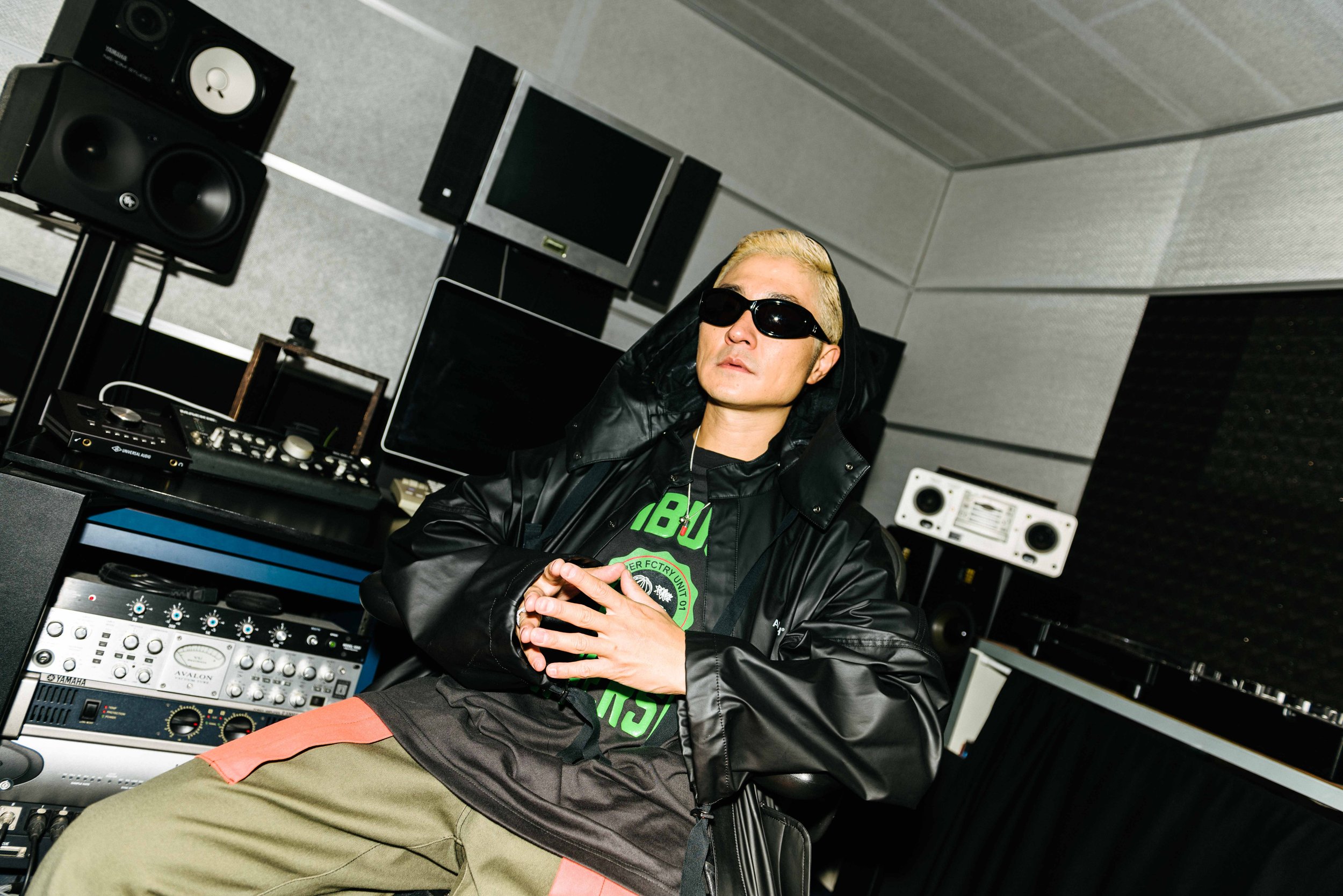
Japan is a melting pot of creatives. As a space so diverse, inspiring, and otherworldly as Japan, with Tokyo being the epicentre, there's no wonder the creative ceiling is never ending for up-and-coming talents. Here, you can’t go more than 5 minutes before finding a new brand start-up, discovering a new progressive collective, or hearing a new artist trying to make it here in this electric concrete metropolis. But, it wasn't always like this.
In fact, it was the complete opposite. Japan by nature was, and in many ways still is an incredibly conservative nation. Parents would put a heavy burden on their children to live a conservative life: go to school, enter college, and get a sustainable job, even if it isn’t exactly what they want to do. The creative industry was often frowned upon and seen as a risky venture, one where the risk very much outweighed the reward. But, luckily, there were particular people who broke this notion. Creative renegades and true hustlers who could not be confined to a normal life, but instead would break the mold and pave the way for all future creatives, and allow them to be as free as they are now.
One of these individuals goes by the name of VERBAL. A pioneer, an OG, and an inspiration to countless creatives moving forward, VERBAL’s reach is as expansive as his numerous roster of talents. Born in Tokyo in 1975 with a Korean background, VERBAL is a rapper, producer, DJ, and designer, who through his creativity has done enough for 10 lifetimes, let alone just one.
Introduced to hip-hop in the early days of his youth, ever since he moved to the US in 1985, VERBAL would go on to create a legacy within the Japanese hip-hop genre, and even bridge the gap between the east and the west. From the early days of his career and his first rap-rock group, N.M.D, turning down a major record label deal, to eventually formulating on Japan's most iconic Hip-Hop groups, Teriyaki Boyz, VERBAL is no stranger to success and the limelight, but never let these bright lights blind him or his vision of staying true to himself and his craft.
VERBAL has been a part of some of the most widely celebrated Japanese groups in hip-hop, such as the aforementioned Teriyaki Boyz. They’ve been associated with the likes of, NIGO, Pharrell Williams, and much more. And not to mention his own & current group m-flo, who have had multiple top-chart hits, and continue to create excitement today. His signature style and bilingual nature made it so that he has a diverse and dynamic flow, something the likes of the industry had hardly heard at the time.
As mentioned before, creatives like VERBAL helped pave the way for future dreamers wishing to venture out from the usual 9-5 career. Without VERBAL, there would be significantly fewer examples of how someone can create a comfortable living by chasing their passions, and this isn’t just from a creative point of view but also from a stereotypical point of view. VERBAL, having a Korean background but being based in Japan whilst also having a presence and impact over in the west, broke many of the stereotypes and prejudices present at the time, and was a key player in making the industry a more open and accessible place for other ethnicities.
Not only is VERBAL an inspiration from a musical standpoint, but he is also as fashionable as he is audible. One of the flyest guys to bless the mic, VERBAL is also co-founder of AMBUSH; jewellery, menswear, womenswear, and all-round bad-ass brand founded in 2008 by Verbal and his wife, an also incredibly well-respected creative and friend of sabukaru, YOON. From designing jewellery specifically for VERBAL to a now giant of the fashion world, AMBUSH is a great representation of the impact the rapper has on things. From music to fashion, everything he touches turns to gold.
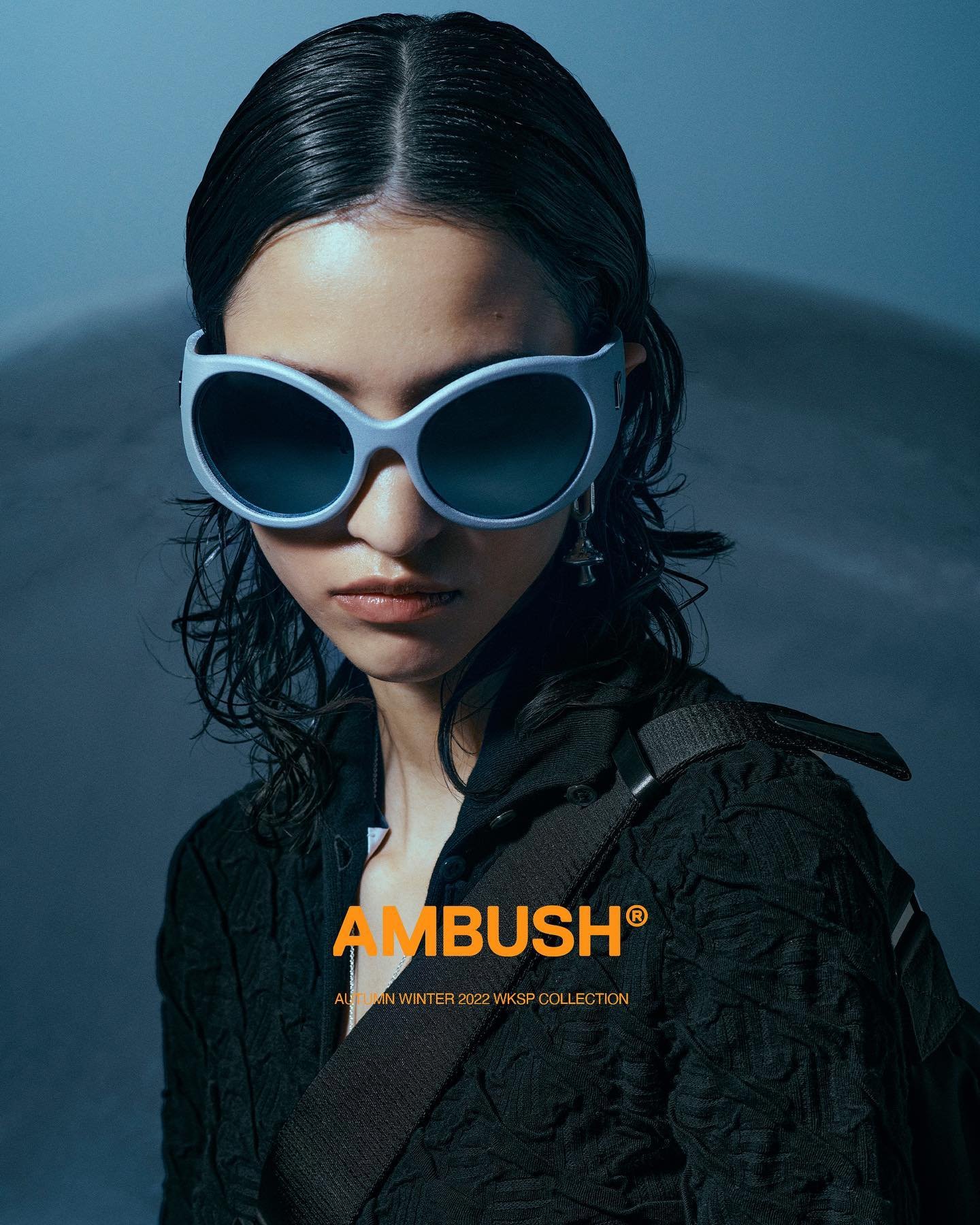
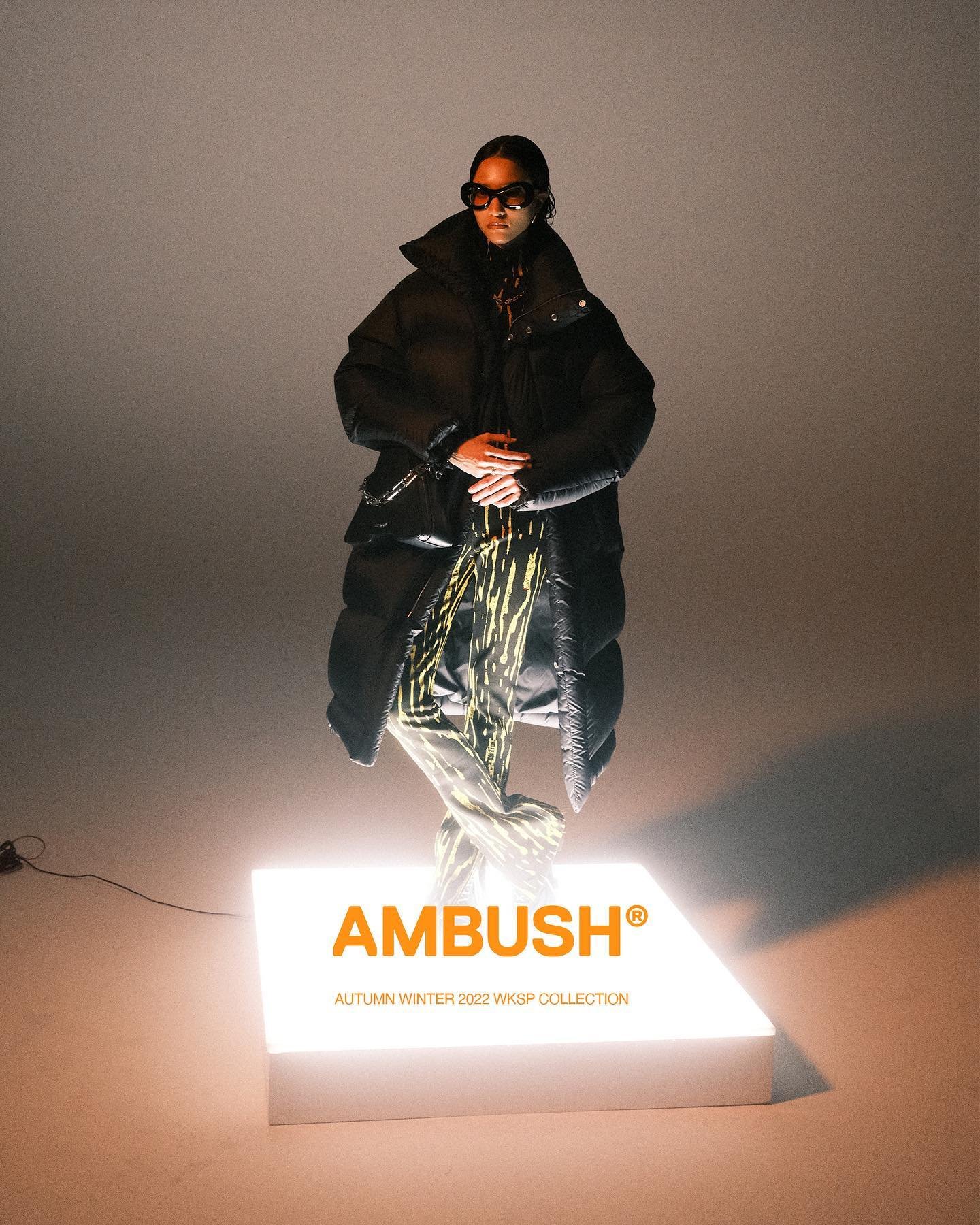
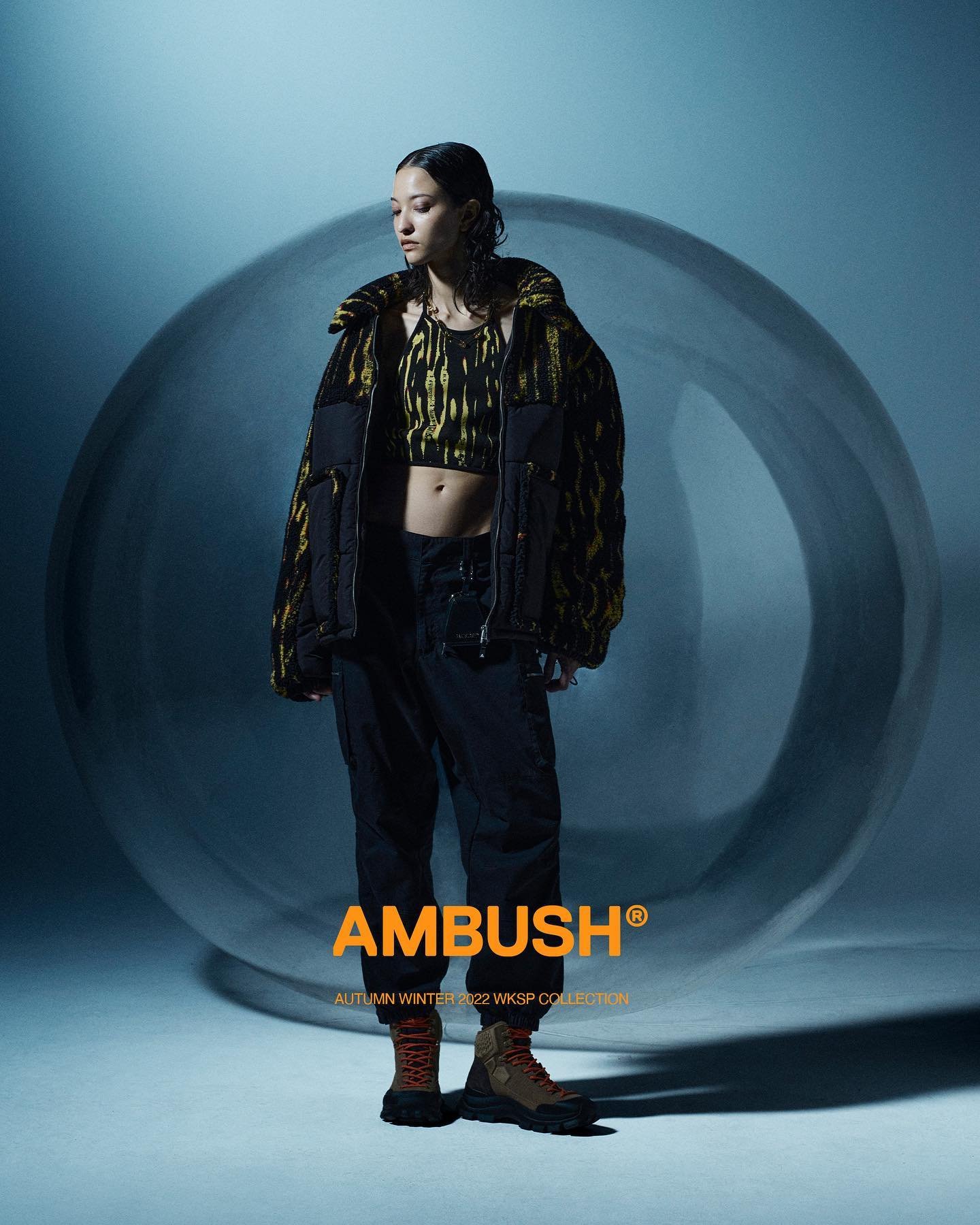
From the tangible world of clothing and jewellery to the digital space of the metaverse, VERBAL’s presence is also now transcending the plains of the real world into a pixelated scape. From hosting virtual DJ sets in VR to now working to create an expansive metaverse bridging the gap between the real and fabricated world, VERBAL, even after a lifelong journey of success and creativity still has no sight of stopping.
VERBAL’s universe is as expansive as his range within music. Being deeply inspired by things such as films, video games, and cyberpunk aesthetics, it's clear why both the sabukaru world and the world of VERBAL synergize so well and why we are such big fans. It’s with great pleasure we were able to interview him, diving into his career, from the origins of his musical career to stories with Teriyaki Boyz. Join us as we learn about the wild ride yet humble life of one of Japan's most iconic rappers.
We want to ask you questions in chronological order to be able to tell the whole story. To begin with, you have quite the international background, but what was your childhood like?
My mother was a Kyoiku-Mama [education-minded mother] and was very adamant about me having an international education. She kept telling me that being able to speak English would determine my future. I was very blessed to have had the opportunity to have gone to an international school since I was little. I was in an environment with kids from different nationalities and cultural backgrounds being the norm.
You also have a very diverse educational background. How have your studies influenced who you are today?
It enabled me to accept and celebrate different cultures and walks of life. I love how fluid and free-form sabukaru is, appreciating the diverse Japanese subcultures from an international perspective, so I think many people who grew up in Japan with a diverse educational background like myself would also feel the same way!
What were your first interactions with music like? Did you always aspire to pursue a career in music?
I stumbled upon my passion for music during high school when I formed a band called N.M.D. with Taku from m-flo. I've known him since 5th grade, and we started the quartet with me as the rapper, Taku as the drummer/producer, and two other guys as the guitarist and bassist, respectively. We would enter high school band contests and throw shows at dance parties, and we performed some of our original songs, as well as covers like "Bring The Noize" by Public Enemy & Anthrax.
We also made demo tapes that I sent to a TV show on Fuji TV called House Energy, where contestants of all music genres performed in front of judges and competed in rounds. We ultimately became the champion, gaining the opportunity to meet with executives at For Life Music, and got offered a record deal in 1992. I was still a junior in high school, so we ended up declining the offer since my parents didn't see music as a sustainable career. They rather had me pursue a college degree.
Before M-Flo, you were part of N.M.D.; a mixture rock band you formed during your high school years. What was it like being part of this band? Has it had an impact on your style today?
It exposed me to different genres of music and almost forced me to adapt to any type of beat and soundscape when writing. I was totally immersed in hip-hop back then, heavily influenced by the likes of GangStarr, N.W.A., Nas, Kool Keith, and so on. Although there was definitely a discrepancy between what I envisioned our band's musical direction should be versus what it ended up being, this expanded my musical universe, enabling me to use my bilingual rap style and flow to create a distinct vibe on every track I got on.
Can you tell us a little bit about these records here?
They are mostly hiphop records from the 90s and 2000s, some 7-inch vinyls, and Jazz records. YOON designed quite a few of these record covers, and in fact, she actually sang “Cherry Bomb” for a certain project. It literally took one take, and she was like, “I’m out.”
You mentioned how you had a Kyoiku-Mama growing up, and how she was against your pursuit of a career in music. Although things have gotten better in the past couple of years, it’s still quite hard for younger Japanese kids to go into creative fields. For any of them, do you have any advice that’s helped you in your long career?
It’s more conducive for people to be creative now. There are so many channels and outlets for creativity for anyone to make a living out of. In comparison, I think I grew up in an era where people were quick to judge anything creative, saying things like, “how are you going to eat?” But it happened to be the same people who respected famous contemporary artists, so it was pretty ironic.
In all fairness, my mother didn't think I would make it as a rapper in the early 90s since there was no precedent of an Asian kid making a living out of rapping. I myself didn't think it was realistic, even though I was getting record deals when I was in high school. It's funny because the record label, For Life Music, was pleasantly surprised that we climbed up the ladder so fast, and they were confused when we turned down the offer. But I just said, "I'm sorry."
What was the clubbing scene like back then? How does it differ from today’s scene?
Although we passed the opportunity for N.M.D., I was still so consumed by music and proceeded to form a 2-MC 3-dancer group with my friends, who were all into hip-hop. We all used to go clubbing together, and at the time, "DADA LMD" and "DANCE KOSHIEN" on Tensai Takeshi no Genki Ga Deru Terebi!! (1985-1996) created a huge dance movement in Japan. There were relatively big events like "Dancers Delight" in CLUB CITTA', where we performed as a group. It was unkempt, messy, and underaged kids were everywhere. There was no regulation or compliance, so I was 15 years old, yet I would be walking into clubs in Roppongi.
There were also fewer regulations around music and anything creative, even TV, so it was funny and crazy, you know? I'm not saying I condone all the crazy stuff that happened, especially in TV programs in Japan back then, but American companies used to take Japanese IPs and make Western versions of the program, so major broadcast shows were interesting. Compared to that, now it's all very washed out and whatever, because they have to be careful with everything they say, so it's so gentrified.
TV shows were insane back then. There was no Netflix, but Japanese TV was as good as HBO. I remember my father used to watch this show called 11 pm (1965-1990), which had a lot of graphic and sexual content, casually broadcasted in our living room. Adding to the fact, Japan was in the middle of an economic boom, so as you can tell, Japan had a lot of energy flowing across the country which resulted in the craziness that was. Anyway, this group was short-lived since I decided to go to the US for college in September 1993. I studied at Boston College, where I double-majored in Business and Philosophy, and at that point, I never imagined I would ever pursue a career in music.
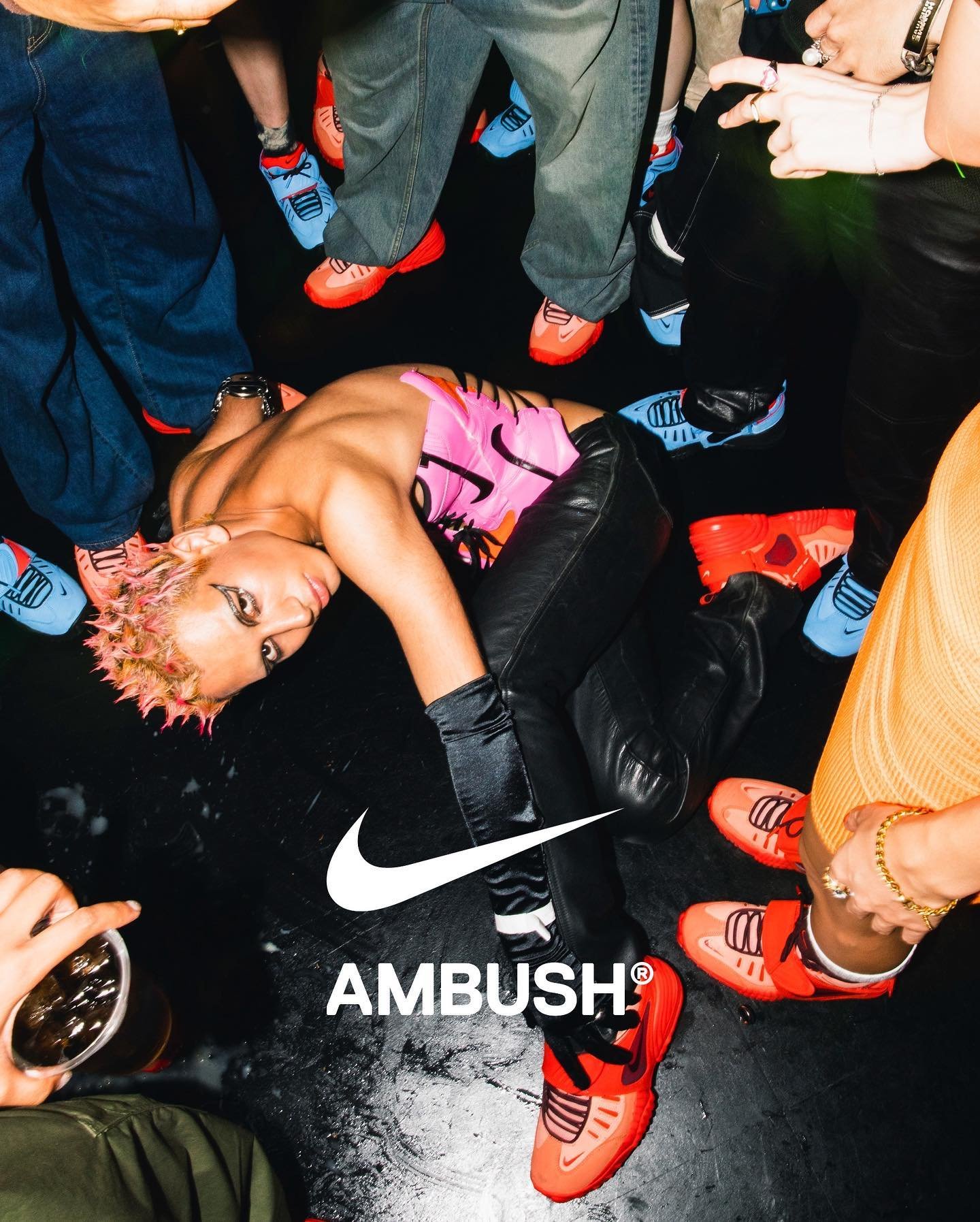
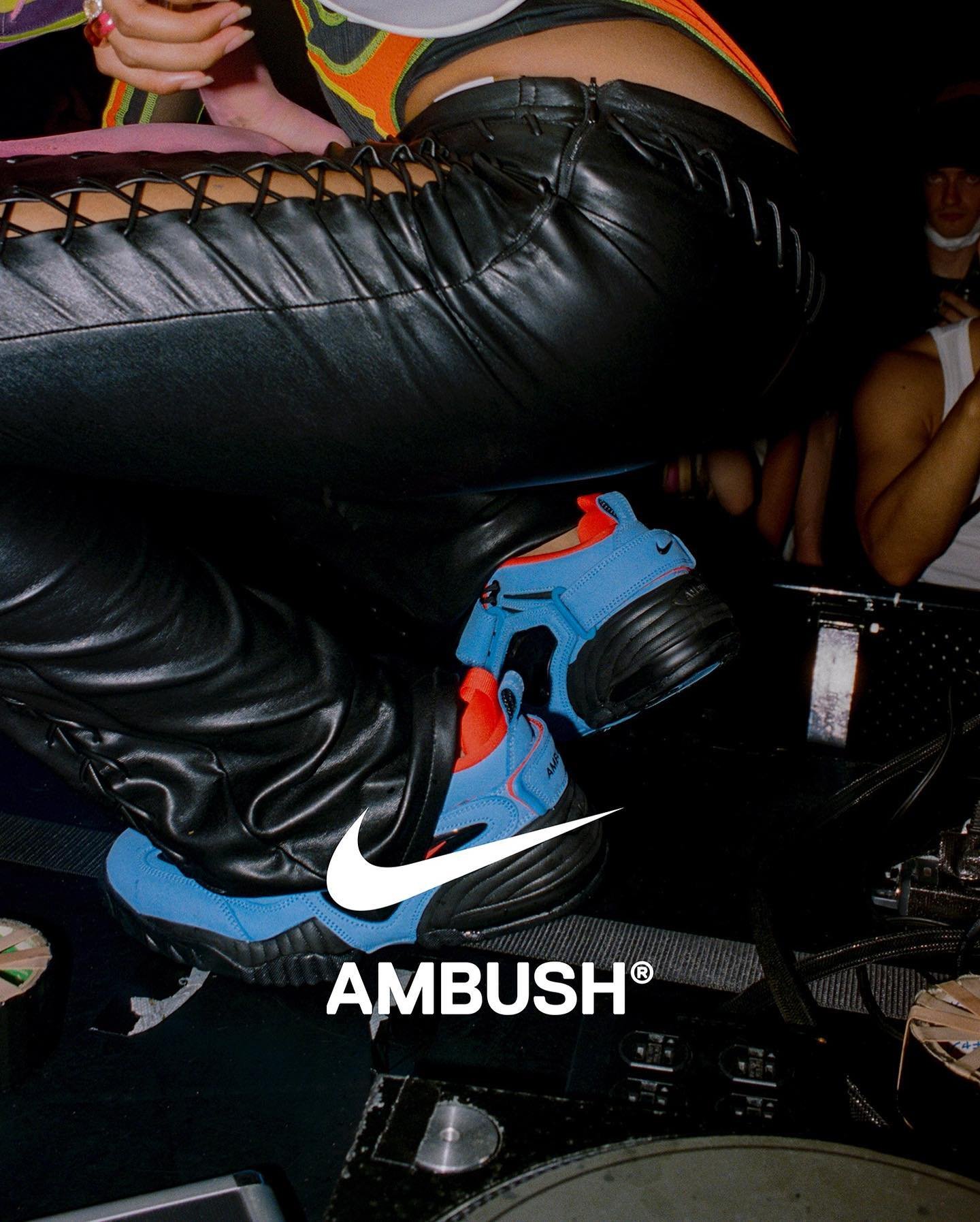
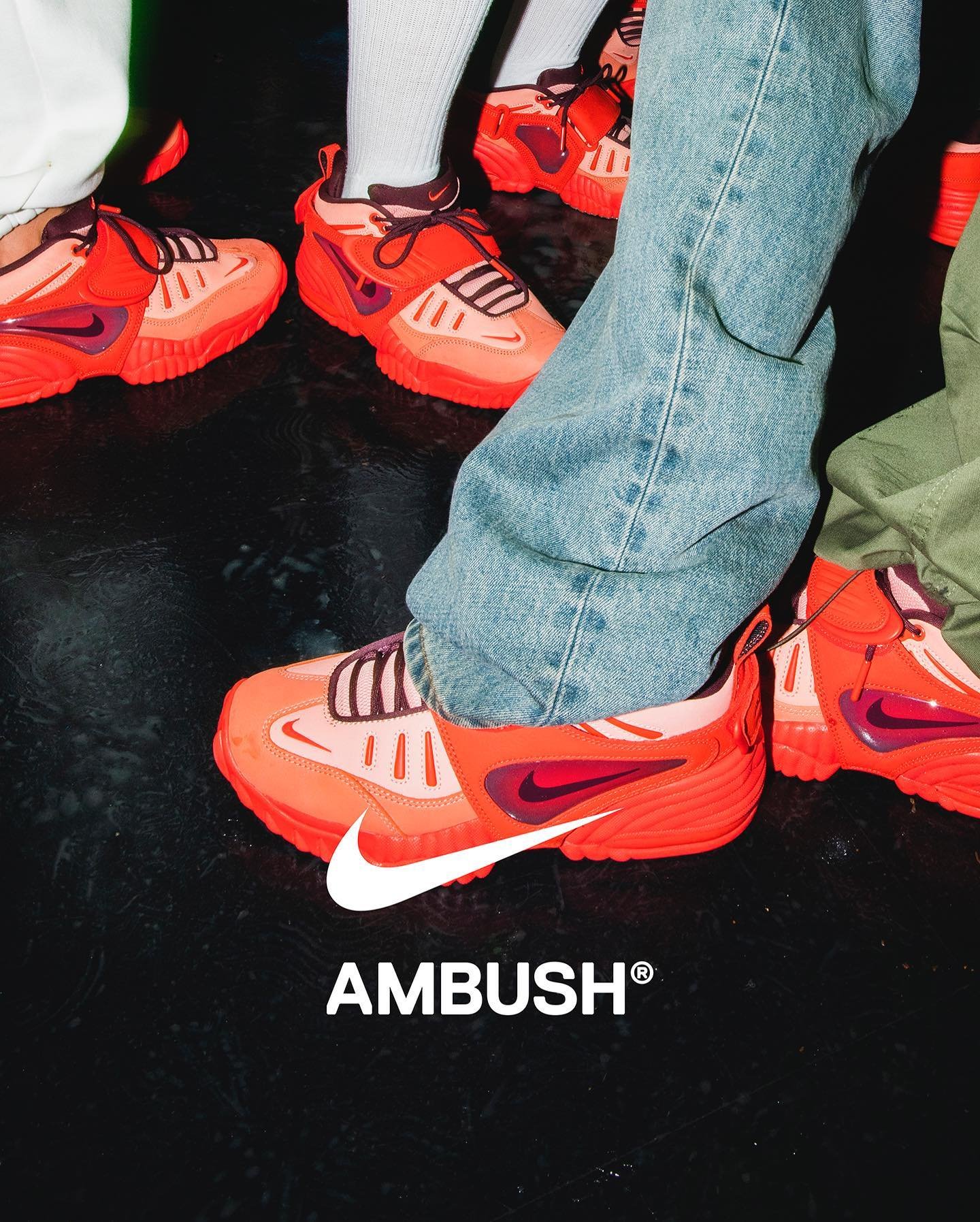
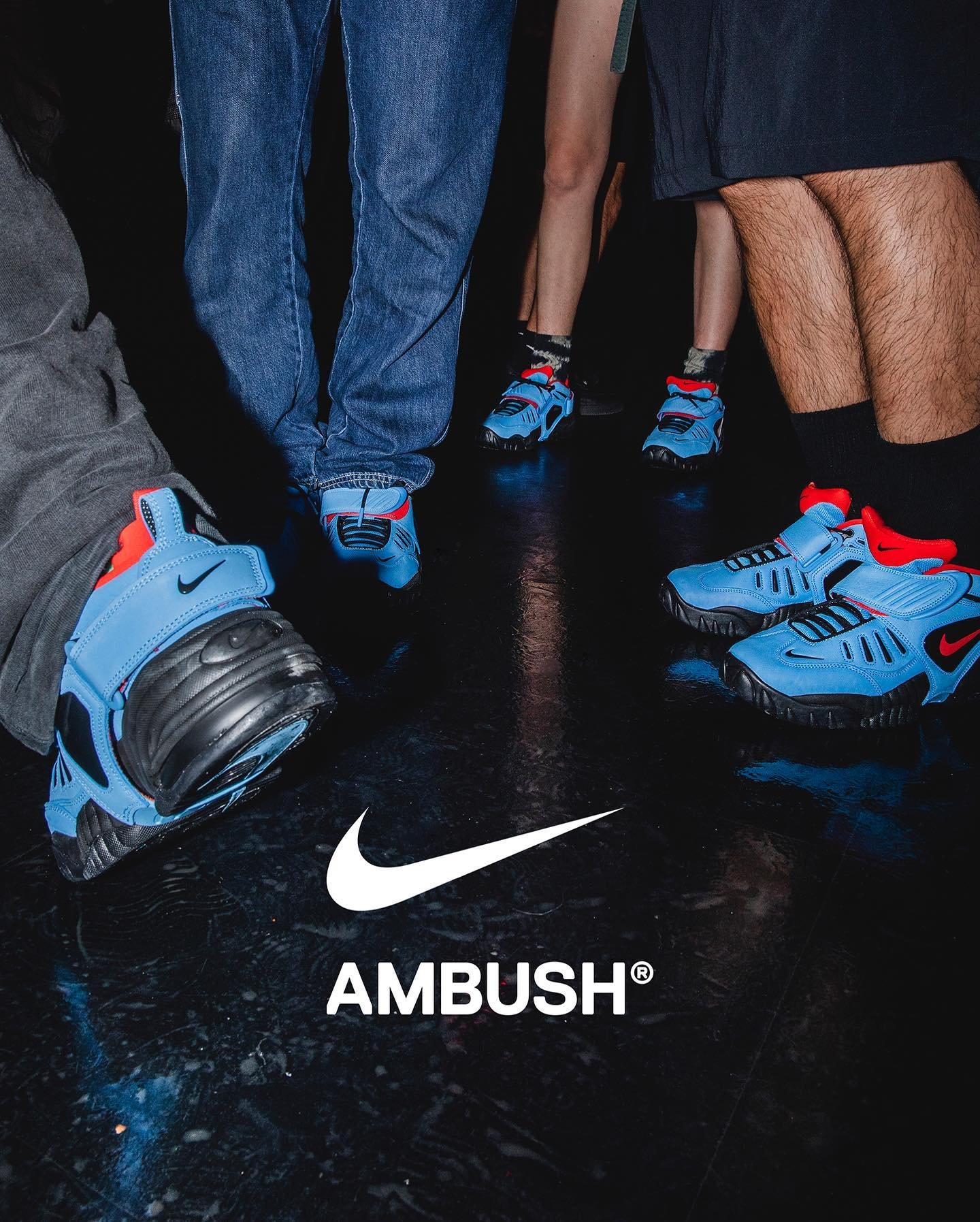
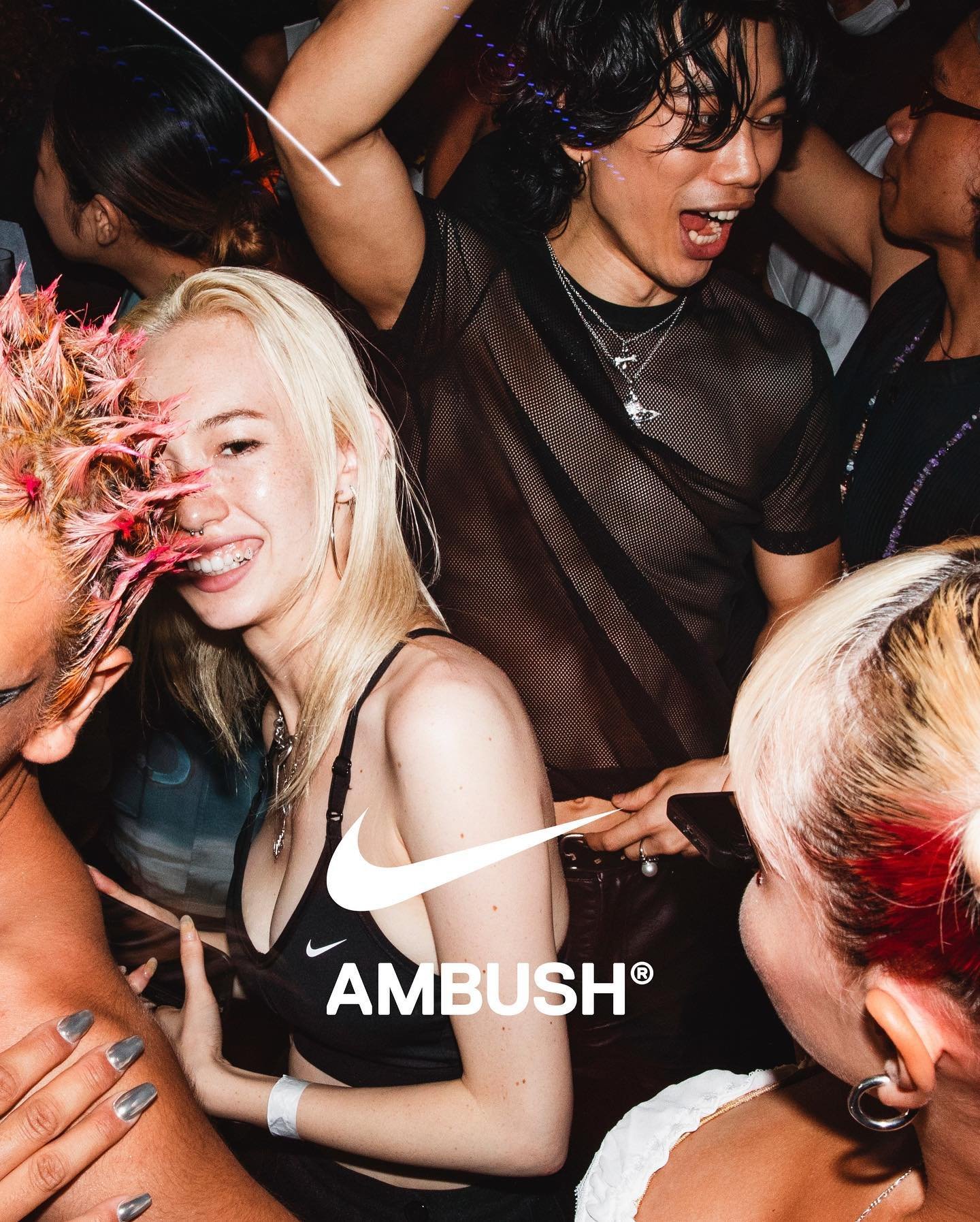
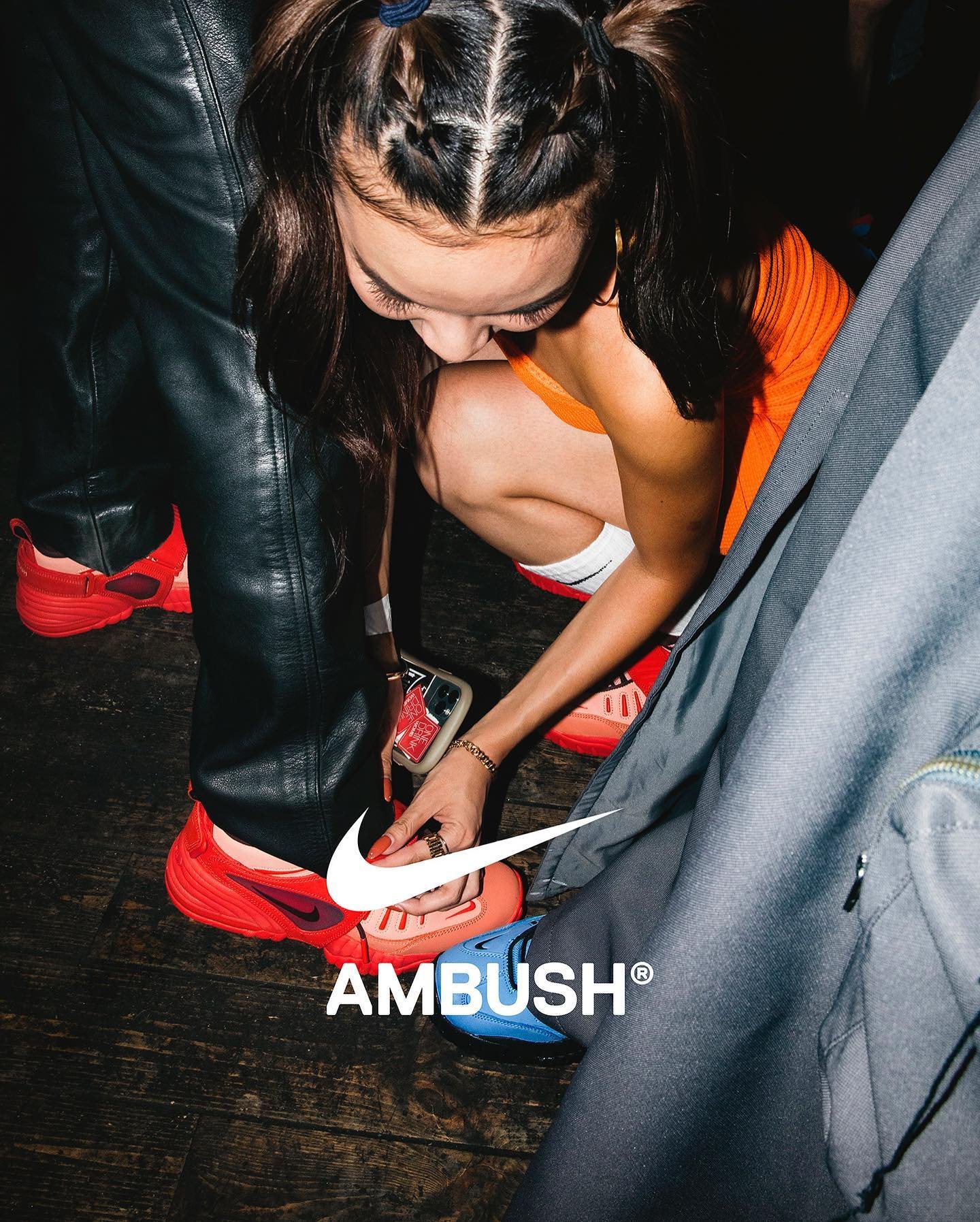
In 1998 after graduating college, and having a brief stint in the workforce, I got back together with Taku, with whom I cut some tracks, which would then fall into the hands of our then-manager and record label A&R, leading us to our subsequent debut as m-flo.
You seem to remember a lot of Japanese TV programs from back then, as well. What were some of your favorite shows?
Takeshi Kitano and Terry Ito had the craziest ideas, and their shows were bottom-of-the-stomach hilarious. I'm also a big fan of Tamori, and I got to be on his show Waratte Iitomo! [1982-2014] when m-flo had a number one song on the Oricon rankings back then. In the last leg of the program, they made us play this game where we won a key chain for our phones, and that was honestly one of the highlights of my music career. There also used to be this show called Soramimi Hour [1992-present] hosted by Tamori, where they played foreign songs that sounded like Japanese, and I used to submit songs to the show, but they never accepted my submissions.
So, when I got on his show, I told him I used to be a big fan of the show, and he went backstage to give me a Soramimi Hour shirt that was made for the winners of the show. That was back in 2006. Fast forward ten years later, I got to meet him at Music Station [1982-present], and I made sure I wore the shirt so I could get his autograph. That was another highlight for me as a musician.
What are some other forms of media that’s impacted you as an individual?
As you can tell, I have a thing for space, anything related to robots, and movies/tv-shows about squadrons. I wasn't necessarily into the stories as much but rather fascinated by the robotics and the pseudo-science behind them. It started with Transformers and Gobots, and I transitioned to being curious about the actual science, whether it was possible or not. Stanley Kubrick's aesthetic was not just futuristic but also had a mid-century edge that I liked, which became a segway for my interest in furniture and industrial design.
Were you into Star Trek, as well?
I wasn't into Star Trek, but Taku was. I liked it, but Star Trek was heavy on the story, making light of 1950s politics since Americans couldn't say bad things about the government, so they were insinuating their wrongdoings through the show, which I thought was genius.
Are there any movies, manga, or anime from Japan that hold a special place in your heart?
Swallowtail Butterfly [1996] by Shunji Iwai: This film painted a dystopian near-future society where people spoke Japanese, English, and Chinese, which actually didn't seem too foreign to me as many kids in my school mainly spoke English and Japanese on default, besides their mother tongue. I felt akin to the characters.
Sonatine [1993] by Takeshi Kitano: I grew up watching Takeshi Kitano as a comedian, so this movie made me realize that you can really reinvent yourself.
Puramo Kyoshiro [1982-1986] by Hisashi Yasui and Koichi Yamato: I used to fantasize about virtually controlling robots, so the current work in the metaverse is me trying to build out what I used to dream about.
We need to hear the story behind this gacha-gacha [capsule toy] machine.
So that’s me, LISA, and Taku for our second album Expo Expo [2001], and we thought it would be cool to have our figurines and merchandise inside the gacha-gacha machine. We had these at the concert venue, and I just wanted to take it home with me, and here it is.
The gacha-gacha machine actually fits in the studio so well.
Yeah, but it’s sort of a coincidence. I made this studio around 2006, and the machine is from 2001. I had this image of making the space look like that one scene from Stanley Kubrick’s 2001: A Space Odyssey [1968]. The soundproof walls are silver, and it's the same material they use for concert domes.
I don't think it's supposed to be used indoors, but I thought it was cool, and I think this studio is the only one that uses it as soundproofing material.
So the white floor in this room is connected to the whole idea [of sticking to the theme of 2001: A Space Odyssey]?
The idea was, initially, since it was just me and YOON working here when we started AMBUSH, the white area was for anything design, and the red area was for music. I wanted to color code the studio according to what kind of creative output was worked on in that room, but it quickly changed since people were constantly coming in and out.
What’s the story behind these guys?
I used to shop vintage a lot, and as you can tell, I’ve been collecting relics that remind me of vintage sci-fi and anything that has a space-y vibe. They would have these random figures in the vintage furniture stores I visited, and this in particular actually wasn’t on sale, but I asked them to sell it to me.
This one is actually interesting in that it served as the basis for the AMBUSH Beethoven necklace. These mini-Beethoven busts were lined-up in a vintage store I visited, and I ended up making a chain out of them. It's nice to go vintage shopping, but I don't go as much anymore.
It’s super cool to see how you guys have become such an influential group to the younger generations. On this note, are there any up-and-coming artists that you have your eyes and ears set on?
I feel totally blessed and am thankful to be a part of people's lives through the music we created. It's especially great hearing from young musicians how influential our sound was to their craft.
Regarding up-and-coming talent, I was backstage for the AMBUSH Autumn/Winter 2022 Collection in Milan on February 26th, and I got introduced to HWIMIN, a Korean artist who YOON commissioned to produce music for one of our visual campaigns, but I was pleasantly surprised to hear that he grew up listening to M-Flow! It was cool because I am also a fan of his music, and I didn't know we were connected on that level already. I also met this artist called SARM at a venue, and her music sounds like a mix of Ringo Sheena and Love Psychedelico, with a mix of EGO-WRAPPIN’.
She's sort of a modern version of these artists, and it almost sounds like she's speaking English, but she's not. I also feel as if the younger generation in the hip-hop scene is more advanced now compared to how it was back then. People used to mix all sorts of vibes and beats, but I personally like how the rap scene is right now.
I also liked Rekstizzy's new song "Hentai," and also this rap-duo from New York called GIRLL CODEE who sample 90s hip-hop songs like Camp Lo’s “Luchini". Dongurizu is another favorite of mine. I think I listen to a lot of new talent in the scene.
As one of the pioneers of Japanese/Asian rap, it’s amazing how what you’ve envisioned back then is slowly taking shape today.
Artists like JP THE WAVY carry on the legacy by reinterpreting our styles from back in the days, and it's interesting to see how he understands and embodies it. Recently, TERIYAKI BOYZ had this small party for close friends at “Lion” in Shibuya, and JP THE WAVY pulled up. He was like, "oh my god, it's the TERIYAKI BOYZ!” It’s inspiring to see his swag, and even though it’s new and fresh, it's reminiscent of the era from how we dressed 15 years ago.
TERIYAKI BOYZ is another topic we can’t miss. Could you tell us a little bit about how the group came to be?
It all began when ILMARI, a member of RIP SLYME, asked me to be on a track with him for NIGO's album, with DJ Shadow as the producer. Back then, we were all in different groups, but hung out at the same clubs, always ending up in the DJ booth, passing the mic around. So, ILMARI suggested we make a song to sing at the parties since he thought it would be fun, and that's when all four of us jumped on a track produced by DJ Shadow called "Kamikaze 108." TERIYAKI BOYZ was a name that randomly popped up only because there used to be this restaurant called Teriyaki Boy in New York, so we said, "why not TERIYAKI BOYZ?" We didn't think it was going to become what it became back then.
We were really just trying to come up with crazy lyrics to make each other laugh, and the good times manifested in our music, but NIGO just kept bringing beat after beat from Ad-Rock of Beastie Boys, and even Daft Punk. So we were just banging out many tracks, recording it here in my studio and at NIGO's old studio, BAPE SOUNDS. We were all inspired and always in the studio, recording tracks back and forth and going on tours. We ended up recording and releasing two albums: Beef or Chicken [2005] and Serious Japanese [2009]. It was surreal having such prominent artists sending us beats, and recently, we recorded a song for NIGO's latest album, and just like back then, Pharrell called me about the project.
Pharrell called me out of the blue at 6am while I was out on my morning run, and told me he will be sending the track for TERIYAKI BOYZ for the "I KNOW NIGO” album. A few minutes after the call the session file arrived. NIGO really opened the doors for artists like myself, and he inspired many to change the way they conduct international business in the Japanese fashion and music scene. Record labels used to say we couldn't communicate with artists overseas since it would cost too much money, but really they were just being “salarymen” and didn’t bother to make an effort to wanted to vibe with different artists and exchange inspiration. Pharrell loved what NIGO was doing, and NIGO respected Pharrell, and so BBC/ICE CREAM came to be, but it was a natural partnership where both artists respected each other's craft.
Can you tell us more about how exactly “Tokyo Drift” came to be, and how it changed things for you guys?
Pharrell reached out for us to be part of the soundtrack for the movie "The Fast and The Furious: Tokyo Drift" (2006), and we ended up recording "Tokyo Drift" and "Cho LARGE”.
When we first heard the track, none of us ever thought it would become such a cultural phenomenon. We wrote without being able to watch the movie, so we just imagined that it would illustrate an American rendition of what Tokyo is like, and that's why our lyrics ended up becoming hyperreal and Akira-esque. We had fun writing and the song captured the vibe of the moments in the studio, making each other laugh and saying crazy things.
Are there any other memorable stories you had with TERIYAKI BOYZ?
We got invited to perform at a festival in Taiwan, and jump on stage for a newly opening local club, too. But on the night of the performance, the club couldn't operate because it didn't clear the business permit or something, so we ended up just chilling at the venue and having drinks. The next day, our photo was in the local newspaper, not for the performance, but for being arrested by the local police! Although the newspaper used our official artist photos, the article was about another Japanese band, GING NANG BOYZ, who were taken in by the local police for stripping on stage during the same festival.
How did your connection with NIGO start?
I remember meeting Kid Cudi way before he released "Day ‘N’ Night," when he was still working at the BAPE store in Soho, telling me how he dug up our music. He actually came up to me with a demo tape. He was on duty, but I thought it was so cool, so I accepted it. We were dumbfounded because we were resonating with cool kids like him, even though we were rapping in Japanese. Then, "Tokyo Drift" just took us to another level.
Image via KID CUDI’s twitter
Do you still remember the style highlights from back then? How did it feel to see Japanese brands going global, and what were the highlights for you in that style story?
As Pharrell sang on the hook in our song "Cho-Large": ‘Big jewels, big cars, big watch on a pair of BAPESTAs, ICE CREAM with an astronaut, you don't understand mammi we cho-large’, we were ushering in a new sense of style, and bridging the cultures between Japan and the rest of the world, in real-time. I remember when we were in Osaka, a lady came up to NIGO and me who had big chains on and said, "Wow, those are very nice beaded necklaces!" I think we were kind of redefining the understanding of custom jewelry in Japan.
Apart from AMBUSH, what were some of the brands you wore back then? What are some brands you like to wear today?
My appreciation and experimentation with fashion, jewellery, sunglasses, sneakers, and watches evolved into a passion/profession. Now I think I express it through my work more than through my attire. I used to carry three big Rimowas to business trips and fashion weeks, but now I travel super lightly.
Looking at your vision, your music seems to be influenced by fashion and vice versa. Who are some people in the music and fashion scenes that you admire or take great inspiration from these days?
Nas, Daft Punk, Wu Tang Clan, Aphex Twin, Gang Starr, Kool Keith, Hiroshi Fujiwara, NIGO, Vivienne Westwood, Rei Kawakubo, Mark Gonzales, Tony Hawk, and Christian Hosoi, are just some of the names. The list could go on forever.
YOON mentioned how you guys used to hang out with all the celebrities when they visited Tokyo. Help us paint the picture. What are some of the places you brought people like Pharrell to back then?
I was totally blessed to be able to brush shoulders with them and eventually become friends with the very people I aspired to be as a creative.
I remember when I met Pharrell in Tokyo, and we got to hop on stage with him at the Studio Coast. It happened to be my 30th birthday, so we all celebrated backstage, after the show! Another memory with Pharrell is when YOON and I took him and his team to the Robot Restaurant in Kabukicho when it first opened.
I still remember the look on his face as he witnessed Japanese girls in bikinis driving massive robots, with every form of laser and lighting confined in a small venue with J-pop techno blaring. It was definitely a night to remember.
From hanging out with Pharrell and taking big names around Tokyo. in the moment, did you see how much the city itself was impacting/influencing the visiting artists?
You have to remember there wasn't as much coverage of life in Tokyo, nor were Western cultures exposed to Japanese media, so people had to go with the stereotypes. Whether it's bright lights, wild animations, or even otaku culture in general, people didn't have a lot of information available to them to understand what Japanese culture was. Most of the people I show around seemed to have been inspired by the aesthetics of the city and just consume every moment of being there.
In general, looking at Tokyo and your connections in the city, how would you describe your feelings towards it? What is “your Tokyo”?
It’s the creative supercharge station to get inspired and recalibrate.
From being a DJ to a designer, and probably many more things people are yet to find out about, how do you describe yourself to people these days?
A portal into different dimensions of creative inspiration.
Let's move on to some questions about your interests. We are very thankful and proud to have someone like you as a fan of sabukaru. What were some of the cultural topics we wrote about that you found to be interesting?
I love your analysis and depiction of the Showa Era and the underworld, but I also appreciate the versatility and wide array of topics you cover, in general. Some of my favorite topics were:
Issei Suda: The Lone Wolf of Japan’s Post War Photography
A Culmination of Nostalgic Cyberpunk – IKEUCHI HIROTO EXHIBITION
Hana-bi: A Kitano Must Watch
Ura-Hara Champion: GOODENOUGH
Sabukaru Guide to 1990s Japanese Hip Hop
Can you tell us more about your connection and love for Japanese subcultures? From movies to anything manga, anime or art –what sucked you in and what keeps you coming back for more?
As a kid, I was fascinated with anything sci-fi and dreamt of becoming a manga artist. I was also into horror films, so I would go to local cinemas to watch zombie movies, but usually by myself because no one wanted to go with me. I remember going to Tokyu Hands to get material and try to make monster head busts as they do for Hollywood movies, but unsuccessfully. In junior high, to get information from overseas, I used to subscribe to magazines like Fangoria, besides music magazines like Word Up! and Yo! I used to skateboard, as well, so artworks by Pushead for Zorlac really resonated with me at the time.
You were born in Tokyo with a Korean background, moved to the States, and decided to come back again. How would you describe your take on what you see and find in Japan's everyday life? Would you say you see more beauty in the ordinary or something entirely different?
Yeah, for sure. Because I find many mundane things interesting, my use of vernacular in my lyrics for M-Flo always made the Japanese staff ask, "Do you know what that means?" I did, of course, but the non-sequitur usage of Japanese words to weave through English phrases, mixing honorifics, and aggressive casual speech was fun for me. It created a totally new language, and I was happy if anyone understood it. It was my form of art.
Whenever there is an exhibition, gallery show, or an artist putting their work out, you're there almost every time, showing love. Can you please tell us a bit about your view and what you find interesting about the Tokyo art scene these days? Who are the artists you look up to? Are there any up-and-comers we should have an eye on?
I love pulling up to exhibitions because that's where I get to meet the artists and people who are fond of their artwork. I especially love works by artists driven by pure creativity, letting the work speak for itself. Hiroto Ikeuchi, Tetsuya Noguchi, Takuro Kuwata, and Taku Obata are among my favorites!
Looking at the art you create with AMBUSH, we see a connection with Astro Boy (1952-1968), and if we're not mistaken, you're releasing your second sculpture. Can you please tell us more about the Astro Boy AMBUSH connection? What does Astro Boy mean to you?
Astro Boy is the pinnacle representation of Japanese creativity, imagined by Osamu Tezuka in the post-war era with so much emotion and a hopeful glimpse into the future. Possessing super powers but not being able to be like his "human" family and friends, his tireless efforts to learn to become one are touching and parallel our philosophy as a brand in so many ways.
Let’s go back to music. From day 1 until today, you have been a central figure to the Japanese hip-hop scene. What was the scene like back then? How has it changed over the years?
Back then, there were a limited number of players, so we all seemed to know each other to some degree, and because we had to show up to places to gain information and connect, the synergy that came from the raw vibes was real. Since hip-hop was "it," and because CD sales were healthy, many record companies were investing in a lot of different hip-hop and R&B acts. But the bubble burst soon thereafter, and the younger heads adapted to streaming and social media, so the music industry is catching up on trying to figure out how to commercialize in this decentralized state. I am more convinced than ever that you should just do your own thing however niche it may be, and the business will follow.
To anybody coming to Tokyo, is there still a place where they can connect with hip-hop culture? Are there any spots that have a special place in your heart?
I think many of the famous clubs like HARLEM are still going strong, but if you want local, then I recommend JUICE BAR ROCKET, which is run by Vikn.
Can you tell us more about why AMBUSH is delving deep into the metaverse?
It goes back to how I used to play games as a kid. My father used to run an arcade, and I remember playing games like Donkey Kong or After Burner when I was five years old. I also got addicted to the Family Computer [US: Nintendo Entertainment System] to the point of almost failing classes, so I had to sell my cartridges at the carnival. Rockstar Games' Grand Theft Auto was putting a dent in my work life, so I had to stop playing games again, but the point being, I was always fascinated with these virtual spaces. M-Flo's second album, Expo Expo, was inspired by the concept of living beings from around the galaxy coming together in this virtual expo.
Fast forward to 2012, I started a motion capture company since I wanted to use them in my shows. No other company produced suits except for this company called Xsens, which rented out suits to Hollywood studios and game developers. We bought a couple of mocap suits from them to use in real-time, so I can control an avatar on stage and hired a bunch of French engineers to figure the math out. These days, I find my love for gaming developing into a passion for technology since creativity seems like it could blossom more with the help of tech. I tried everything from mocap to AR and spiraled into a rabbit hole of being fascinated with the technology itself but never quite figuring out how to incorporate technology with fashion. We ended up doing the projection mapping for Cav Empt's fashion week show, but we never figured out how to use the mocap suits to full effect.
Fast forward to the start of the pandemic, I got into VR, which evolved from my obsession for mocap technology. I started doing DJ sets in virtual spaces, but it was clunky and diffcult for first-time users to onboard at first, so I was finding ways to make it more user-friendly and exciting. That's when I stumbled upon Web 3.0. I first learned that you can token-gate rooms, meaning you can block access to virtual spaces for people without the corresponding NFT, and discovered the different applications of blockchain technology. I knew about crypto from a while back, but it took me until late 2020 to fall in love with it, so it unveiled a lot of the stuff that's available in our metaverse now. We released our first project this past February, the POW! REBOOT NFT to commemorate the start of our virtual community. We decided to make the POW! Ring our motif for our first project since that was the first piece of jewelry that got us on notice and started our community in real life. We then went right into making our metaverse, and we had the same people who built Porter Robinson's metaverse build ours. The developers are majorly into music, so we all clicked during our first meeting, and it's been quite exciting making the space into virtual reality with them. I dabbled with a lot technology to integrate into entertainment and fashion without much success, until I encountered blockchain technology, all the moving parts seem to have fallen into place, and it's been so much fun unraveling all the ideas. Now that we've built our proprietary space, I wanted to make it easy to access since the unease of use has only made it difficult for more people to adopt the technology. I want some high school kids checking out our space on the way home from school on the train, whether it's through their phones or with virtual headsets, so we've made it so that you can access our space through a link.
Another thing we've been focusing on is creating an inclusive environment since technology and gadgetry are usually associated with the male demographic in Japan. VR headsets are bulky and clunky, and that doesn’t help encourage the female demographic to try it out, so we've been working on realizing this perfect space so we can eventually do more creative stuff that inspires other people to jump in on creating their own take. Everything over the last two years since the start of the pandemic has accelerated our desire to create more in the space, and YOON's been catching the vibe as of late, giving more attention to the virtual space the last year. Although I do have to admit, I understand why other fashion brands and entertainment entities are hesitant to move into the space since it’s a hassle, and a lot of work.
If you could go back in time and re-experience one of the shows you’ve done in the past, which one would you go back to?
There was this one live show that got me close to Namie Amuro. I think it was back in 2000 during an m-flo show, and I was jumping on stage to get the audience going, but I jumped forward and fell off the stage, and Namie Amuro saw that. She thought that was hilarious and came up to me after the show, making fun of me for disappearing off the stage. From there, we hung out and ended up collaborating, coming up with a group called Suite Chic.
If there was one moment I could go back to, that concert would be it.
If you could meet anyone, dead or alive, who would it be?
I want to be an assistant to Takeshi Kitano. I want to be his assistant, and watch him go through a day in his life. You learn so much by just watching people work and seeing how they spend their time. Takeshi Kitano has reinvented himself so many times, so it would be interesting to see him go to work. There are so many of his movies that I got inspired by, but the recent Asakusa Kid [2021], in particular, seeing him come from a certain background, and go through what he had to through to be where he is today, is just amazing. He's funny, clever, and cutting-edge, yet well respected. Unfortunately, we don't have the queen acknowledging prominent figures in society like in the U.K., but even then, Takeshi Kitano transcends everything, and I respect that about him.
I've met so many people throughout my career, but I've never met him in person. He's a legend, so I would love to meet him in person and hang out with him. It's hard to pick a favorite movie of his, but I loved Hana-bi [1997] and Outrage [2010] because his outtake on mafia culture was raw. Yakuza movies were quite popular in Japan back then, but most of them were V-Cinema-Esque (B-rated). But when Takeshi Kitano decided to shine a light on the topic, the whole genre got more respect having such a well-established director telling stories. Takeshi Kitano was the ultimate spokesperson for this subculture.
Do you have any advice for our young readers?
Well, I’m a fan myself, so whoever is reading, I’m only as good a reader as anyone. I think people who appreciate sabukaru content, also appreciate things beyond what’s in front of them, so the more digging they do, the clearer image of whatever they’re seeking they get. Having said that, whether you work a part-time job in 7Eleven or work for a company as a regular salaryman, the economy is set up in a way that the risk of financial instability caused by chasing your dreams doesn’t actually outweigh the risk of you remaining unhappy with a fat wallet, so might as well chase your dreams. There will come a moment when things aren’t working, and you’ll know it, but you just have to say you’ve set a path for others to walk in, and it’s time you pass the torch. If you have a burning passion for something, don’t give up, otherwise, you’ll regret it for the rest of your life.
Thank you so much for your time today!
Interview: Casey Takumi Omori
Words: Joe Goodwin
Images: Natsuki Ludwig







